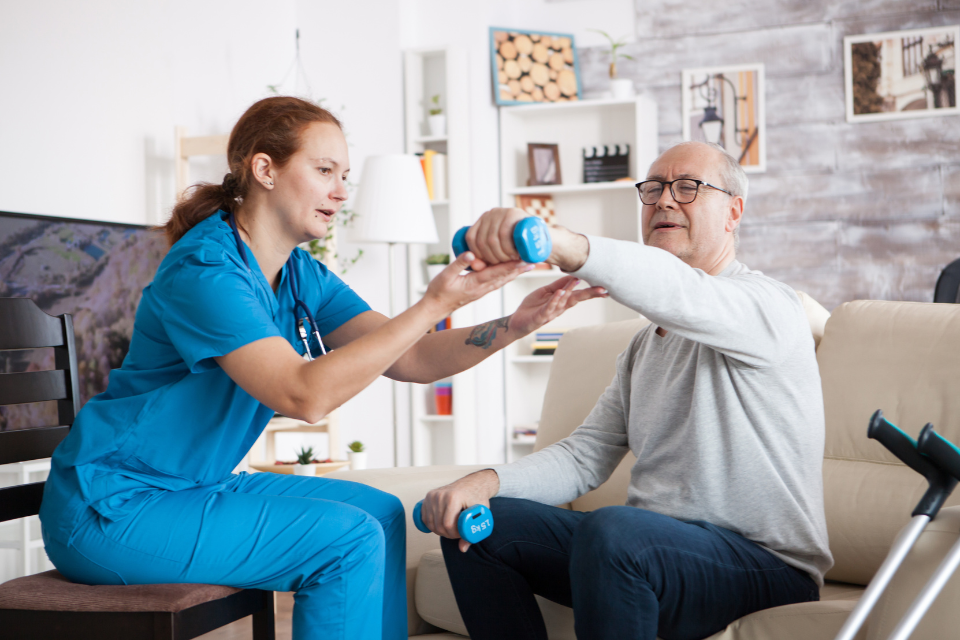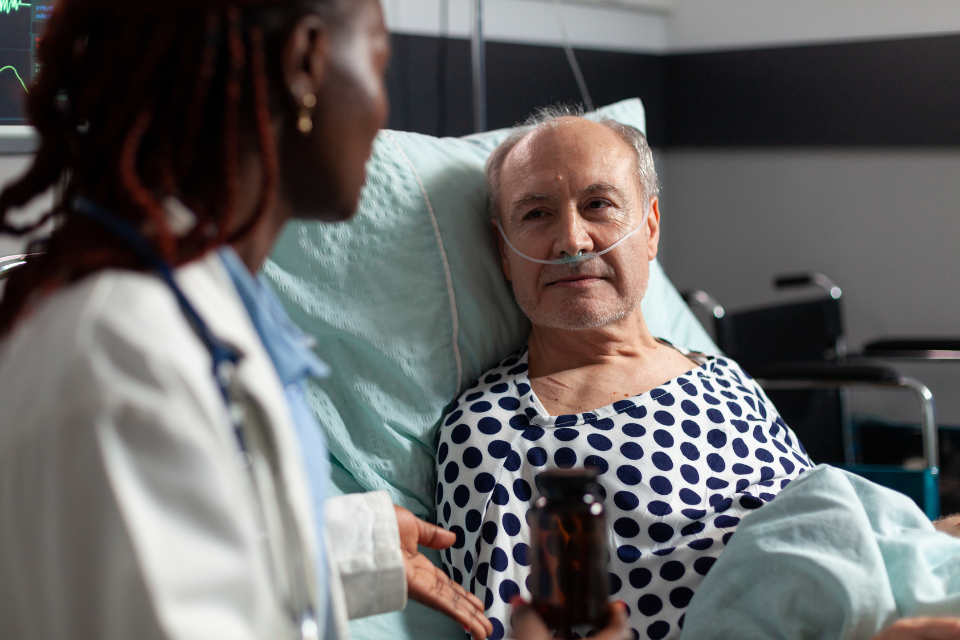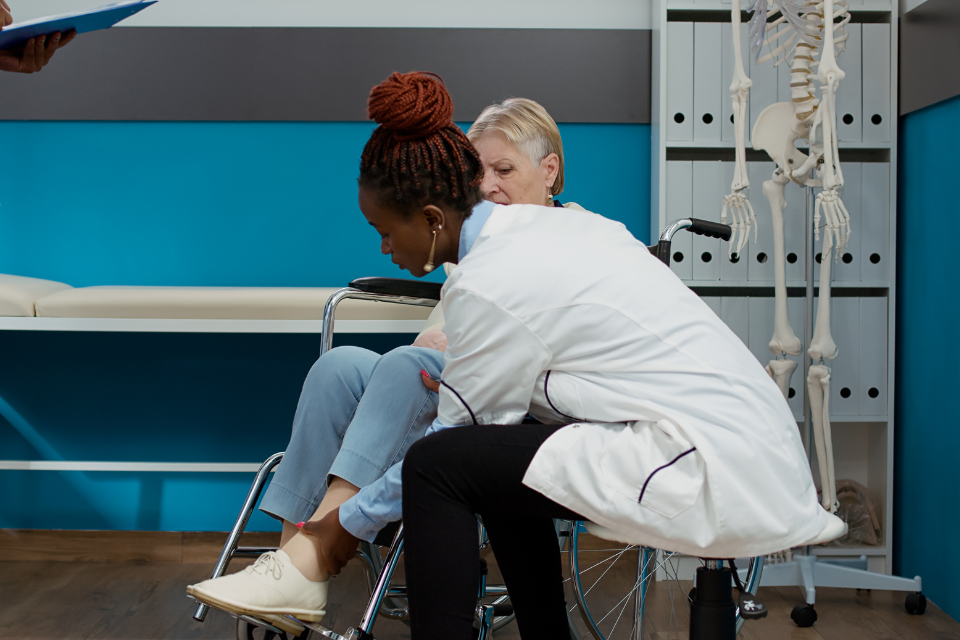A stroke can leave lasting impacts, affecting mobility, speech, and independence. Physiotherapy stands as a vital component in stroke rehabilitation, aiding individuals in regaining strength, and mobility, and reclaiming their lives. Let’s explore how physiotherapy plays a pivotal role in the treatment and recovery journey after a stroke.
- Immediate Post-Stroke Care:
- Early Intervention: Physiotherapy often begins shortly after a stroke to prevent complications and start the rehabilitation process.
- Assessment and Goal Setting: A physiotherapist conducts an assessment to understand impairments and collaborates with the patient to set realistic rehabilitation goals.
- Physical Rehabilitation:
- Mobility Training: Physiotherapists devise exercises to improve balance, coordination, and walking ability, gradually progressing from basic movements to more complex tasks.
- Strength and Range of Motion Exercises: Targeted exercises aim to strengthen weakened muscles and improve flexibility, addressing the effects of muscle weakness or spasticity post-stroke.
- Functional Rehabilitation:
- Activities of Daily Living (ADL) Training: Physiotherapy includes relearning tasks like dressing, grooming, and household activities to regain independence.
- Assistive Devices and Techniques: Physiotherapists educate on the use of assistive devices like canes or walkers, optimizing functionality.
- Neuroplasticity and Relearning:
- Task-Specific Training: Physiotherapy utilizes repetitive task training to stimulate neuroplasticity, encouraging the brain to rewire and adapt to new movement patterns.
- Constraint-induced movement Therapy (CIMT): Restricting the use of the unaffected limb encourages the use of the affected limb, aiding in its recovery.
- Communication and Swallowing Management:
- Speech and Language Therapy: In conjunction with speech therapists, physiotherapy addresses difficulties in swallowing, speaking, and cognitive impairments post-stroke.
- Long-Term Rehabilitation and Support:
- Home Exercise Programs: Physiotherapists design personalized home exercise routines to continue progress between sessions.
- Community Resources: Referring individuals to support groups and community programs aids in ongoing rehabilitation and social engagement.
- Emotional Support and Motivation:
- Psychological Well-being: Physiotherapists offer support and encouragement, addressing emotional challenges and providing motivation throughout the recovery journey.
Physiotherapy is an indispensable aspect of stroke rehabilitation, facilitating recovery, and improving the quality of life for individuals post-stroke. Through targeted exercises, functional training, and a comprehensive approach encompassing physical, emotional, and functional aspects, physiotherapy empowers stroke survivors to regain independence and adapt to life after stroke. The dedication and expertise of physiotherapists play a transformative role in the recovery process, fostering hope and progress every step of the way.



